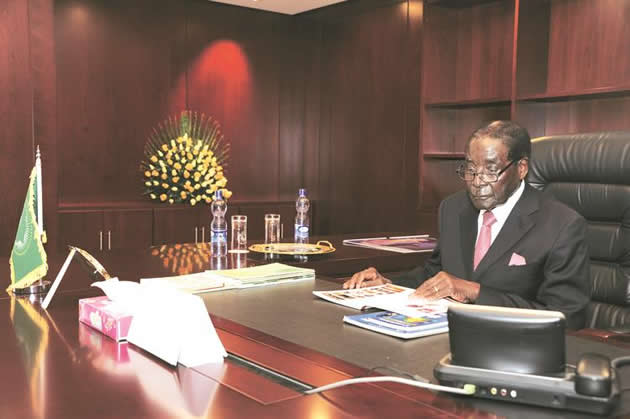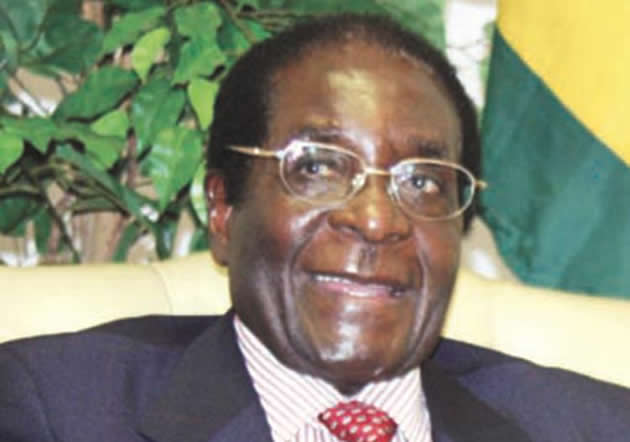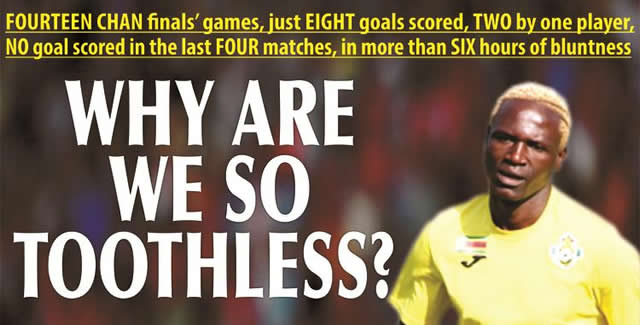African Union in historical shake-up


The 26th AU Summit in Addis Ababa this week is also expected to result in the election of a new chairman to replace President Mugabe who is seen here in his office at the AU headquarters in Ethiopia
Correspondents
Traditionally, elections at the African Union (AU) Commission and for structures like the Peace and Security Council (PSC) don’t raise much interest beyond the small circle of AU insiders.
This is quickly changing, however. As the AU shakes off its historical image as an unnecessarily bureaucratic organisation with little impact on real issues, the question of who runs the show in Addis Ababa has become more and more important.
At this week’s 26th AU Summit in Addis Ababa, all 15 members of the PSC will be re-elected, and for the first time there is some real uncertainty over who gets these positions.
Also the meeting is expected to result in the election of a new chairman to replace President Robert Mugabe.
AU Commission Chairperson Nkosazana Dlamini-Zuma’s first stint will come to an end mid this year.
Believed to be eyeing a political office in South Africa, she is unlikely to contest a second term.
The incoming AU president will have to contend with the escalating and more devastating terrorist attacks in countries like Kenya, Somalia, Mali and Nigeria.
Also waiting to be addressed are matters relating to the predicament of refugees who have died in huge numbers attempting to cross to Europe.
Reluctant to view them as bona fide asylum seekers, the EU has offered funds to countries of origin as an incentive to stop their nationals from leaving.
Such urgent matters aside, reports of hotspots that have sprung up in different countries are a cause for worry.
The hotspots are a setback to the African renaissance that has brought hope to many.
The AU Commission chairperson will also be elected in July this year — a crucial appointment that is already sparking a lot of speculation.
The bruising election of Nkosazana Dlamini-Zuma, who narrowly beat outgoing chairperson Jean Ping in 2012, is still fresh in many people’s minds.
The AU will probably try to avoid a rerun of this standoff, which created much resentment and even animosity between member states.
The 15 members of the PSC — of whom five will serve for three years and 10 will serve for two years — will be elected during the Executive Council meeting of AU foreign ministers on 27 and 28 January.
The decision will then be sent to the Assembly of Heads of State and Government for approval on January 30 and 31.
The PSC is fast becoming a crucial institution that makes the final decisions on a wide range of issues.
It can decide on military action — as was evident with its groundbreaking decision to send troops to Burundi at the end of last year; renew mandates and decide the budgets of peacekeeping forces such as the AU Mission to Somalia. It can also decide to sanction countries after a coup d’état, as it did last year in Burkina Faso. These factors make the PSC an institution with clout, and a seat on the PSC is important for countries that want to influence decision-making on the continent.
Elections to the PSC take place on a regional basis. Southern Africa, Central Africa and East Africa are each allocated three seats; West Africa has four seats and North Africa has two.
Ultimately, regions therefore decide which states to propose to the Executive Council.
The system of regional representation is coming under strain, however, with some in the AU arguing for a semi-permanent seat for big countries.
This would lead to a situation similar to that of the United Nations Security Council, where a small group of powerful nations decide for the rest of the world. The AU has always deemed that configuration to be unfair.
It remains to be seen whether the continental heavyweights — Nigeria, South Africa, Ethiopia, Algeria and Egypt — will get a seat on the new PSC.
Nigeria’s place is more or less reserved and Ethiopia is likely to get another term on the PSC for East Africa, but there is still uncertainty over the candidates for Southern Africa and North Africa.
South Africa earlier indicated it will not run for re-election on the PSC, but some sources say Botswana, Mozambique and South Africa are still the likely candidates for this region.
Likewise, uncertainty remains over whether Algeria will retain its seat.
Besides equitable regional representation and national rotation, there are several other criteria that should be taken into account when electing members, according to the PSC protocol.
These include a commitment to uphold the AU principles; a contribution to promoting and maintaining peace and security in Africa (experience in peace support operations is an advantage) and contribution to the Peace Fund — or a special fund created for a specific purpose.
Other criteria include respect for constitutional governance (in accordance with the Lomé Declaration), the rule of law and human rights, and sufficiently resourced permanent missions at the AU and United Nations headquarters.
If these criteria are strictly adhered to, it might exclude more than one potential member and favour the notion of powerful countries getting precedence on the PSC.
The PSC elections could be the object of some give and take in the run-up to the crucial election of the commissioners later this year.
Certain powerful countries could, for example, choose not to serve on the PSC if they get a strong position in the AU Commission.
These AU Commission elections are based on the same regional principles, with regional economic communities traditionally proposing candidates for the two prominent positions of the AU Commission — chairperson and deputy chairperson.
Every region is entitled two of the eight commissioners. The regions from which the chairperson and the deputy chairperson hail are entitled to one commissioner each.
At this stage, prospects are still very vague. The current chairperson, Nkosazana Dlamini-Zuma, has not indicated whether she plans to step down or run for another four-year term. The possibility of her pursuing political ambitions at home in South Africa has led to speculation around her potential exit from the AU.
Several sources believe that if Dlamini-Zuma does not run for re-election, it will be North Africa’s turn to occupy the commission chair.
The region has never had one of its nationals become either secretary-general of the Organisation of African Unity, or chairperson of the commission. Ramtane Lamamra, the current Algerian foreign minister — and incidentally former commissioner of peace and security — is strongly tipped to replace Dlamini-Zuma.
Algiers has a strong case. Its historic support to national liberation movements in Africa gives it anti-imperialist credentials — something particularly appreciated in the southern and eastern parts of the continent.
Meanwhile, its linguistic proximity could win the support of French-speaking states. Algeria’s complicated relationship with France could be an advantage, given continued suspicion about French-speaking states being too close to Paris. However, it is still unknown how the proximity of many French-speaking countries with Morocco — whose diplomacy is far more active in sub-Saharan Africa — would impact an Algerian bid. If Lamamra were to be elected, the current commissioner of peace and security, Smaïl Chergui — also Algerian — might have to step down. Even if the region is allowed two commissioners, it is unlikely that both of them will be from the same country.
If Algeria gets the job, it will show that the unwritten rule that smaller countries should occupy key positions in the AU is a thing of the past.
The election of Dlamini-Zuma broke this informal rule, which barred nationals from the regional powers (Nigeria, Algeria, Egypt and South Africa) to chair the commission.
Nigeria and other major states opposed the South African bid in 2012 on these very grounds.
The Assembly elects the chairperson and the deputy chairperson by secret ballot and a two-thirds majority of the members states eligible to vote. The commissioners are elected by the Executive Council, which submits their names to the Assembly for appointment.
Regional rotation within the AU has always been a strong principle that allows for a measure of equitable representation. However, as with the PSC elections, capabilities — hard and soft power — are also crucial considerations to determine who can successfully lead the continental institutions.
Who gets the positions in this year’s elections would be a test for the foreign policy of the AU’s 54 member states; particularly the big powers. — ISS Africa/Daily Nation.









Comments